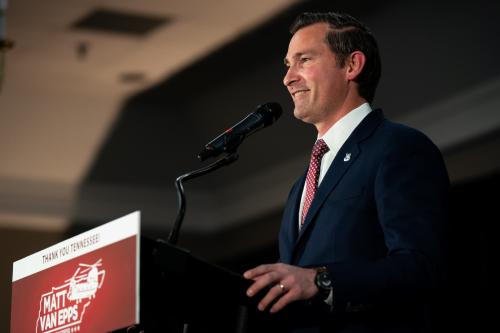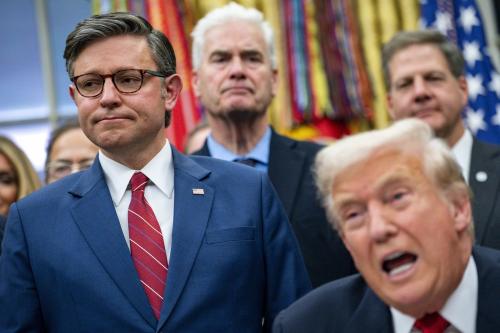“Without democracy there cannot be peace.” – Nelson Mandela, South Africa, May 9, 1992
The Mandela music should keep playing in us as our thank you to him.
He joined the party very late, turned on the music, gave us the characteristic Mandela moves and left with a bang. In fact, he joined the party quite late: 44 years after the first democratic election in Africa in Liberia in 1950, after 27 years of imprisonment, Nelson Mandela at the age of 75 became the first black president of post-apartheid South Africa.
Mandela’s presidency was fraught with symbolism and is an immense encyclopedia on governance and the heart and capacity of a continent to rise to great heights. It was a lesson in transitions, a lesson in democracy, a lesson in civic engagement and, most of all, a lesson in the strength of leadership and institutions. April 27, 1994 and the five years that followed should be the biggest legacy of Nelson Mandela to world leaders and African leaders in particular. In his elegant and soft, but incisive, style Mandela left behind a blueprint for leaders and citizens of Africa on how to ensure peace through democracy by what I will call the Mandela Rule.
The Mandela Rule—a pivot to multiparty elections and leadership transitions in southern Africa. Many African countries began the slow transition to multiparty elections between 1990 and 2000, but in southern Africa the spread was remarkable and it happened around a Mandela movement between 1991 and 1995. Robert Mugabe won the first multiparty elections in Zimbabwe, Chissano in Mozambique, Nojuma in Namibia, Do Santos in Angola, Chiluba in Zambia (the multi-party electoral system was re-established in 1991 after being banned in 1973 by Kaunda), Muluzi in Malawi, Djohar in the Comoros, and Rene in Seychelles. Three years after the release of Nelson Mandela from Robben Island and the organization of the South African elections, all of southern Africa but for Swaziland and Lesotho with their monarchies had moved to multiparty elections.
The Mandela Rule—ruling by coalition to build a shared vision. No winner takes it all, but a team of rivals for success. The 1994 elections led to coalition rule in South Africa, with the majority African National Congress (ANC) Party ruling with F.W. de Klerk’s National Party and Mangosuthu Buthelezi’s Inkatha Freedom Party (IFP). Nineteen different parties took part in the election. This lesson in inclusion embodied the practical side of Mandela, the ANC—having never been in power before—could most likely not manage the delicate transition and twin challenges of maintaining economic activity and reconciling a nation. Most multiparty elections in Africa have not resulted in coalition building but have mostly entrenched and nourished divisions often leading to civil wars and prolonged conflicts. More African leaders need to take a page from Mandela’s book on the power of coalitions and credible inclusion.
The Mandela Rule—credible institutions, civic engagement and public responsibility. A record 90 percent of the voting age population in South Africa turned out to vote in 1994. The massive turnout of all races, works of life and creeds was a testament no doubt to the historic nature of the event. More importantly, it was a demonstration by the people of a willingness to collectively and actively shape their future. In the years and months running up to the election much was done by the Independent Electoral Commission to organize credible elections, ensure full participation of all, and provide resources at the community level to educate the population on the importance of voting and on the need for participation. The South African experience showed that independent institutions, a transparent and credible process (even with flaws), and an inclusive process are critical for good elections. In Kenya’s most recent election, voter turnout was over 85.9 percent, in Ghana it was 80 percent, and in Sierra Leone it was 91 percent. These countries are increasingly consolidating their democracies and building an engaged population based on solid election infrastructure as well as a constitution that represents a national vision that is shared and respected by all. Now, the challenge in South Africa will be to sustain these levels of engagement. Since the historic 1994 elections, voter participation has since dropped to 77 percent in South Africa. For many African countries, the robustness of electoral infrastructure is yet to be put in place. Electoral commissions in many places are poorly funded, rarely independent and hardly professional. Voter education and civic engagement are done in an opportunistic manner, the opposition is poorly organized, and constitutions are not inclusive documents representing a national vision. Thus, the lesson from the 1994 Mandela transition remains relevant for many.
The Mandela Rule—the certainty of exit: “Do not call me, I will call you.” Nelson was one of less than a handful of leaders to voluntarily step down from power. While many more countries today have succeeded in organizing periodic multiparty elections, many more still need to commit to honoring their constitutions and term limits. In over 10 countries on the continent, leaders have been in power for 15 years or more (Angola, Cameroon, Equatorial Guinea, Rwanda, Burkina Faso and Sudan). Despite elections, constitutions are constantly being ignored, amended or discarded to meddle with term limits. This phenomenon of uncertainty around the transition process on the continent has seriously tarnished what could be considered a successful transition by African countries to a more representative leadership pattern—a cause Mandela gave his life for. To honor Madiba, African leaders should commit to respect this everlasting wish of his. The African Union, with the firm disciple of Mandela at its helm, should use the Union to enshrine the Mandela Rule in its books and make it official as the enduring legacy of one of Africa’s and the world’s greatest. It would be a fitting tribute to an everlasting leader.
“For to be free is not merely to cast off one’s chains, but to live in a way that respects and enhances the freedom of others.” – Nelson Mandela from Long Walk to Freedom, 1995
The Brookings Institution is committed to quality, independence, and impact.
We are supported by a diverse array of funders. In line with our values and policies, each Brookings publication represents the sole views of its author(s).




Commentary
The Mandela Rule—A Legacy to African Leaders
December 6, 2013